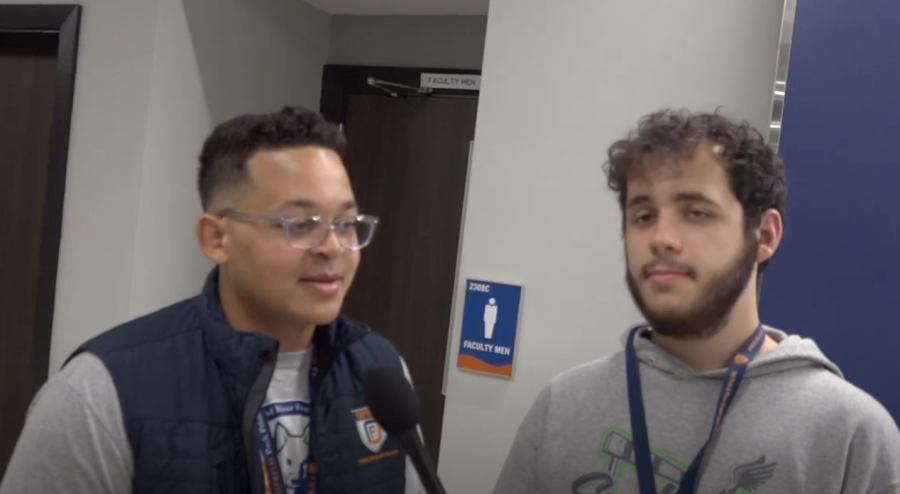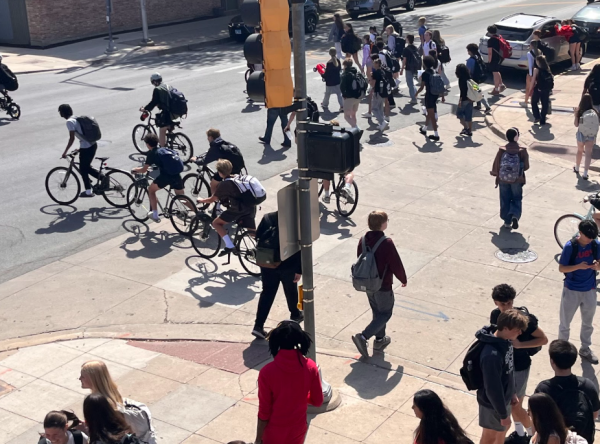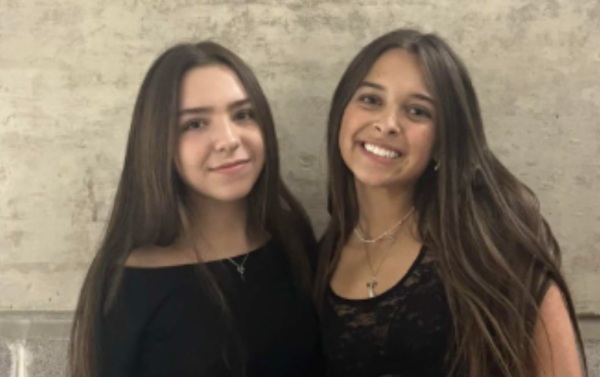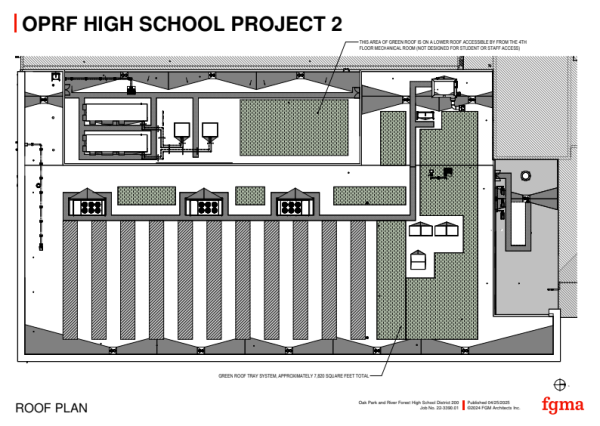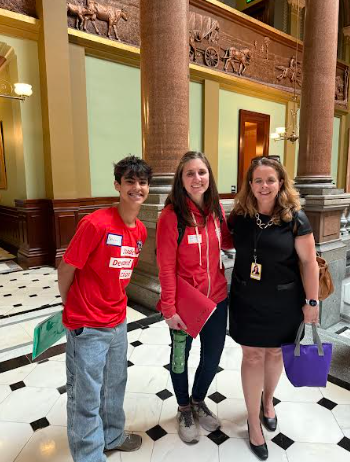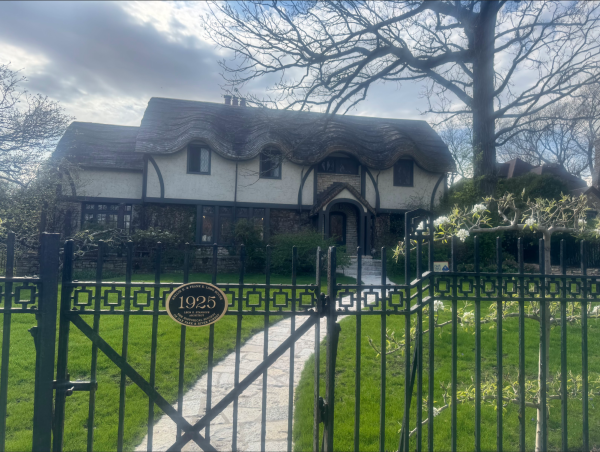Newscene attracts a new scene of students
Newscene, Oak Park and River Forest High School’s television program, has new leadership and a larger group than ever before. In past years, there were rarely more than 10 students on Newscene, but this year there are 16.
Newscene releases about one episode a week, which is usually played during advisory. It has segments about music, sports, television and anything the OPRF community is interested in. Some segments include “What’s on the Aux,” about music, and “Fit Check,” about fashion.
Diana Castro, Newscene’s new teacher, is both highly involved in the production of Newscene and the well-being of her students.
“Every day I do a daily check-in form with every one of my students, and the form asks name, how did you sleep, how are you feeling today, three adjectives that describe your mood and usually a question of the day,” said Castro. “The daily check-in is for me to get to know each of my students at a different level.”
Castro values creating an environment where students feel safe sharing their experiences and ideas. Her goal is for “students to tell more individual stories, that more that may speak to their peers.”
Payton Wernet, a senior on Newscene, explained how Newscene has benefitted him. “Being on Newscene makes me more comfortable, whether it’s presentations or just being on camera in general,” he said. “I’ve just learned to be more vocal and advocate for myself as much as I can.”
Wernet is also the only returning member of Newscene from last year, giving him a unique perspective on the changes made this year by Castro.
“I feel like Ms. Castro is definitely more involved with the production of the shows. She tells us, like, we can always talk to her if there’s anything going on, and she tries to connect with the students on a personal and school level,” said Wernet.
“I don’t really know what last year was like, so I don’t know whether the change is good or bad. I do get a lot of feedback from everyone, which is positive. So I think we’re doing something right,” said Castro.
An additional change that Castro has made is shortening the length of Newscene’s weekly episodes. “What I’ve learned through the years is that high school students want short videos,” said Castro.
Zaria Townes, a senior in Newscene, said, “I feel like the shortening of it is very important. Because of Tiktok, Snapchat and Twitter, we now just like shorter content. We went down to five-minute episodes from 10, and I think that’s just so much better for viewer retention.”
Newscene is a full-year class that students can take multiple times after taking the prerequisite, which is Intro to Broadcasting or Creative Film. After taking one of the two, you are eligible to join Newscene.
Almost doubling the Newscene staff has brought more perspectives and ideas. “A lot of the students in Newscene are very self motivated,” said Castro. “There is usually something that they want to do, and I’m just like, go do it.”
Wernet added that a larger group is helpful because, “You’re gonna have people that have different strong suits, and then you can figure out how we can incorporate everyone.”
Isla Gordon, the only sophomore in Newscene, shared their experience on Newscene so far, saying, “Now we’re really cohesive, but at the beginning, it was very much that we all just didn’t have the same brain. But our teacher really brought us together.”
Gordon said that at first many of their ideas weren’t approved, but they have now started her new segment, “Keeping up with the Huskies.”
“At first I was like, how do I find something that’s different enough but also something that I want to do?” said Gordon. “And that’s what this segment is. I’m really proud of it.”
“When you come up with topics, you have to think about the student body and what’s important for them,” said Wernet. “By covering a topic that people might not know about, it’s more likely that students will feel like everyone has a place throughout the school.”
The accurate portrayal of the student body is made easier by the substantial student involvement. As Townes puts it, “We know what the students want because we are the students. It’s for us. It’s by us. It’s authentic.”
As well as having the role of keeping students informed on a weekly basis, Newscene students have people skills and the confidence to be on camera. “Standing in front of a camera and speaking into a microphone is not an easy task,” said Castro. “Once you gain self confidence in doing something in this room, I think it becomes a really great skill, and it might be your only opportunity to do it.”
Newscene presents an opportunity for students to experience what filmmaking is like. “I’ve kind of wanted to do this kind of stuff my whole life. It’s really rewarding to be a part of this and actually have resources to make something,” said Gordon. Newscene students have access to professional level cameras and equipment, creating an accurate portrayal of what the film industry is like.
Newscene is a valuable part of OPRF, according to Wernet. “We just want to make the shows as best as we can to really have a few shows left to be impactful and people learn from them,” he said.
“Newscene is great because it includes so many people of different races, different sizes, different grades, everyone gets a chance to be shown,” said Townes.

